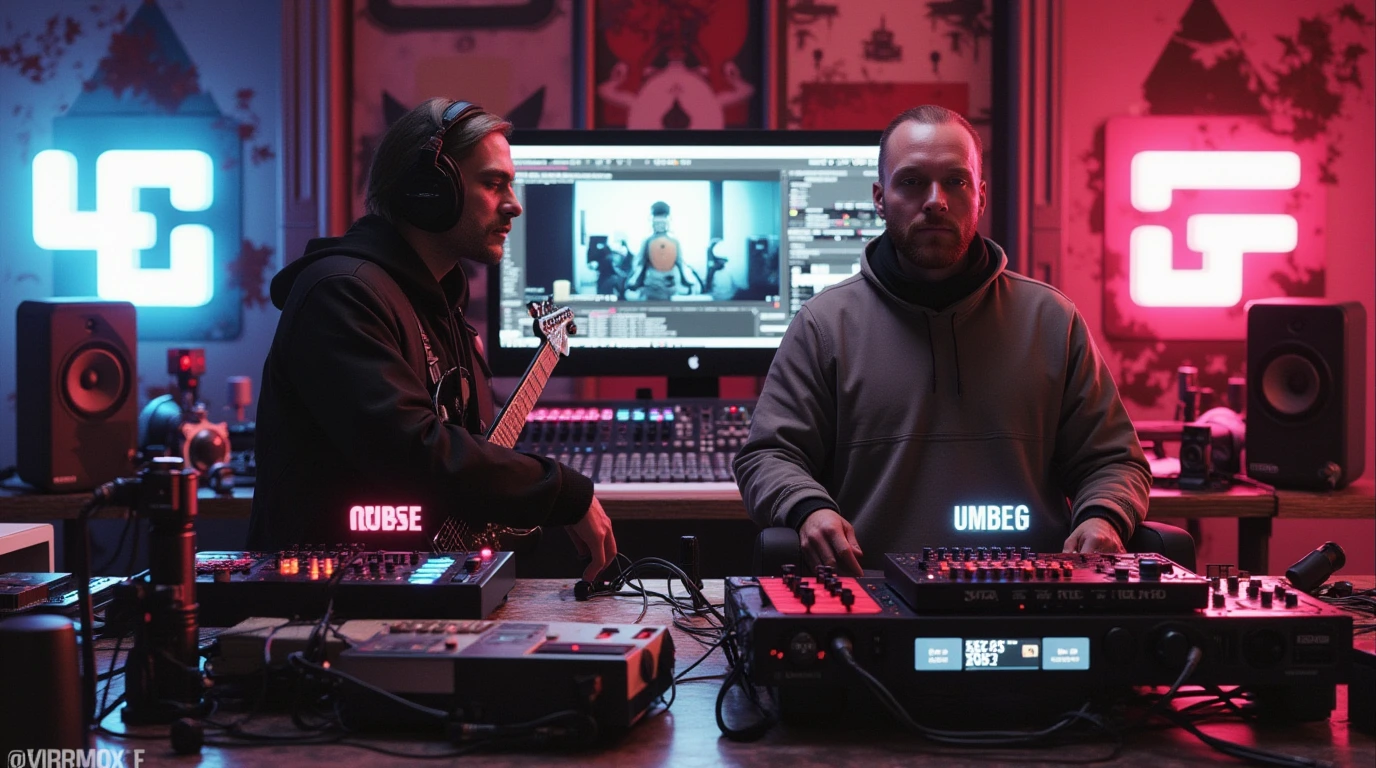
“If you’re good enough, you’ll make it.” This long-held belief has shaped the dreams of countless aspiring musicians. But in today’s digital-first world, talent is only one piece of the puzzle. The modern music industry rewards those who understand marketing, branding, and the psychology of audience engagement — often more than those with extraordinary skill.
Let’s break down the real reasons why talent alone won’t cut it and what today’s artists need to succeed.
1. The Mere Exposure Effect: Repetition Creates Hits
Ever wondered why some songs seem to magically get stuck in your head? It’s not just catchiness — it’s psychology.
The Mere Exposure Effect is a cognitive bias where people develop a preference for things they repeatedly encounter. In music, this means that songs with high visibility — whether through TikTok trends, playlist placements, or social media virality — become ‘catchy’ simply because they are frequently heard.
Take Lil Nas X’s Old Town Road, for example. When the song first blew up, it wasn’t backed by a major label. Instead, it became a global phenomenon largely due to memes, TikTok loops, and user-generated content that repeatedly exposed listeners to the track. The song’s success wasn’t just about its catchy beat; it was about the sheer frequency with which people were exposed to it through viral moments.
Takeaway: Artists need to engineer visibility — whether through strategic marketing, social media campaigns, or viral moments. Repetition works.

2. The Attention Economy: Marketing Over Musicality
The Attention Economy (a concept popularized by Herbert Simon) suggests that in a world overloaded with content, attention is the most valuable currency.
In music, this means that capturing and maintaining attention is just as important as making good music. Artists who understand branding, create intrigue, or even lean into controversy will often outperform those relying solely on their vocal or instrumental abilities.
Consider Doja Cat, for instance. She’s not only a talented musician, but she also seamlessly blends music, meme culture, and internet humor, creating viral moments that keep her audience engaged. Her ability to create and control these moments ensures that her music remains relevant and visible in a saturated digital landscape, proving that strategy often outweighs raw skill.
Takeaway: In today’s industry, if you’re not grabbing attention, you’re getting lost in the noise. Artists must master the art of attention capture.
3. The Pareto Principle (80/20 Rule): Where Effort Should Go
The Pareto Principle suggests that 80% of success comes from 20% of efforts. Many musicians spend years perfecting their craft but neglect marketing and networking, thinking their talent alone will carry them.
Russ, the independent rapper, is a prime example of this principle in action. He didn’t rely on a major label to make it. Instead, he focused on consistently releasing music and engaging with his audience. By dedicating more time to marketing and content creation than the average artist, Russ was able to build a massive following, all without the backing of a traditional record deal.
Takeaway: Talent alone won’t cut it. Smart work is greater than hard work. Focus your efforts on what drives exposure and engagement.

4. The Halo Effect: Perception Shapes Reality
The Halo Effect is a psychological bias where people’s perceptions of one trait influence their judgment of unrelated qualities. In music, this often translates to an artist’s image, branding, and overall persona making them seem more talented than they may actually be.
Take Billie Eilish, for example. Her distinct visual aesthetic and branding helped her stand out before many even heard her music. The intriguing blend of her unique persona and storytelling created such a strong public image that it amplified her perceived musical genius. In essence, her brand wasn’t just a reflection of her music — it became an essential part of how people viewed her talent.
Takeaway: Artists who craft a strong, memorable brand gain an edge over those who don’t. Perception matters as much as reality.
5. Algorithmic Favoritism and the Bandwagon Effect
In today’s digital music landscape, success often breeds more success, thanks in part to algorithms that favor content with initial momentum. Streaming platforms and social media sites tend to promote what’s already performing well — whether it’s the best music or not.
This creates a “cumulative advantage” where early exposure leads to more exposure, and virality can seem ‘manufactured.’ Many independent artists, knowing this, use strategies like ad placements, influencer collaborations, and artificial engagement boosts to trigger this effect. Once a song starts appearing popular on a platform, real audiences flock to it, reinforcing its perceived success.
This effect was visible when a song gained traction, driving its algorithmic push even further, eventually making it feel as though the song was destined to be a hit, when in fact it was merely benefitting from the snowball effect.
Takeaway: Early traction is critical. If you can generate visibility early, you can harness the power of algorithms and social proof to carry you further.

Final Thoughts: Strategy is the New Talent
Being an amazing musician is no longer enough. If you’re not thinking about marketing, branding, and visibility, you’re playing a losing game. The traditional approach to music, where raw talent alone determines success, is increasingly outdated.
Today’s artists must go beyond their craft and master the business of music. It’s about building a brand, capturing attention, engineering visibility, and playing the algorithm.
The question is no longer “Are you talented enough?” but rather, “Are you strategic enough to make your talent matter?”
If you’re an artist, marketer, or industry professional, I’d love to hear your thoughts! How do you balance talent and strategy in today’s music world?

Leave a Reply